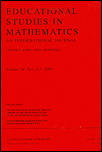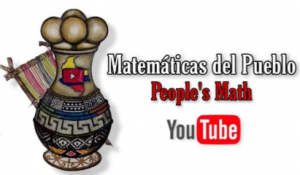Call for Abstracts – Race, Racism, and Racialization in Mathematics Education. Educational Studies in Mathematics An International Journal
Race, Racism, and Racialization in Mathematics Education: Global Perspectives
In the Spring of 2020, mathematics education in the United States and across the globe unfolded against the backdrop of the state-sanctioned murders of George Floyd, Ahmaud Aubery, Breonna Taylor, and other unarmed Black Americans. These murders received worldwide attention, and sparked global protest movements against white supremacy, antiblackness, racial capitalism, and state authority. There had previously been widespread reluctance and refusal–especially among those who benefit–to acknowledge the enduring prevalence and violence of racism. The gradual move away from more explicit forms of racism and racial terror (e.g., chattel slavery, lynching, legalized segregation), coupled with the rise of colorblind ideology have also contributed to the idea that racism is no longer relevant. However, the convergence of protests focused on white supremacy, antiblackness, and racial capitalism in the United States with international protests focused on related phenomena of xenophobia, nationalism, and neocolonialism, may signal a growing willingness to acknowledge and accept that racism is still relevant, not only in the realm of interpersonal experience but also within institutions, structures, and systems.
Mathematics education, as a social institution and a field of social practices that differentially distributes access to high-status mathematical knowledge and identities of competence, is situated within the racial histories and racialized social systems of every society. Which mathematical knowledge and competencies are valued, which groups are deemed doers of mathematics and worthy of access to mathematical and social opportunities, and what purposes and interests mathematics education is expected to serve are all negotiated and contested within these racialized social systems.
Growing research in the United States has shown that mathematics education functions simultaneously as a context for racialized experiences and as a kind of political project that maintains white supremacy and exists in dialectical relationship to other political projects like neoliberalism, nationalism, and militarism (e.g., Battey & Leyva, 2016; Cedillo, 2018; Chen & Buell, 2018; Gutstein, 2009; Jett & Davis, 2019; Martin, 2009, 2011, 2013, 2019; Martin, Anderson, Shah, 2019; Prices & Moore, 2016; Shah, 2019; Stinson, 2017).
Beyond the United States, where political destabilization, mass migration, and tensions around multiculturalism continue to surface different expressions and manifestations of racial oppression, we are encouraged to see that race and mathematics education has received attention in particular locations, including South Africa (Khuzwayo, 2005; Mosimege, 2000; 2012), Colombia (Valencia, 2016; Valoyes-Chávez, 2014, 2015, 2017), Brazil (Da Silva, 2008; 2016; Gomes da Silva & Powell, 2016), and Israel (Mulat & Arcavi, 2009). We are also encouraged to see collaborations among scholars in different parts of the world to compare and contrast the racialized contexts of mathematics education (e.g., Valoyes-Chávez & Martin, 2016).
However, analyses of race, racism, and racialization are not reflected broadly as considerations in international mathematics education research. In many European countries, the scientific rejection of the biological notion of race has led to the adoption of neo-racial concepts such as ethnicity to talk about differences in experience and the realities of hierarchical, oppressive systems. In other contexts, race has been re-articulated as a cultural construct in ways that the multiple effects and practices of racial discrimination are obscured and hindered (Restrepo, 2014).
This Special Issue is timely because it seizes on this moment of contestation and protest and provides an opportunity to highlight–theoretically and empirically–how the meanings for race have been articulated, re-articulated, and negotiated within and across global contexts, in the spaces of mathematics education.
For example, what are the implications of the emergence of a far-right, conservative racial project for mathematics education in Denmark and for immigrant families and their children who find themselves under attack by the right-wing Danish People’s party (Weiner, 2014; Wren, 2001)? How does segregation experienced by immigrants in an increasingly racialized political and educational landscape in Sweden shape their mathematics education (Dovemark, 2013)? How do experiences with everyday racism by Malays and Indians in Singapore (Velayutham, 2017)–groups who occupy very different positions in the country’s social and racial hierarchy hierarchy–play out in the context of mathematics education? How do Black immigrants in the United Kingdom negotiate their mathematics identities within that racialized social system? How do the manifestations of race and caste, regionally and beyond, shape mathematics education in India? What are the implications for mathematics education of the maintenance of white supremacy in Brazil, a country that characterizes itself as a racial democracy even in the face of empirical research and everyday experiences that suggest otherwise? What are the racialized conditions and histories of mathematics education for Aboriginals in Australia (post White Australia policy), Maoris in New Zealand, or native Fijians in Fiji? How do racism and settler colonialism interact to shape mathematics education, experientially and structurally, for Indigenous students throughout Canada?
We envision submissions of conceptual and empirical studies. In general, we are interested in articles that address, but are not limited to:
- Specifications of how white supremacy, nationalism, xenophobia, colonialism, anti-indigeneity, or anti-Black racism, for example, shape mathematics education research, policy, and practice in specific geopolitical contexts.
- Context-specific examples of how mathematics teaching and learning in schools and classrooms are shaped by or resist racism and racialization processes.
- The formation or dismantling of racial hierarchies related to mathematics teaching, learning, and assessment.
- Intersectional analysis of race with ethnicity, gender, class, religion, caste, ability, in the context of mathematics education.
- Explication of different theoretical approaches to studying race and racialization processes in mathematics education across global contexts.
We aim for geographic distribution of papers, and so we invite contributions from all regions, and contributions that feature conversation across regions. We aim for papers representing the range of experience too – from scholars with vast experience to new scholars with new perspectives. If you know of someone whom you would like to see contributing to this special issue, please forward this call to them.
Submissions may be full length ESM papers (7000 words not including references, tables, figures, etc.) or shorter (e.g., 5000 words). There will be good opportunity for revision with feedback from other contributors to the special issue (the first round of review), so do not be afraid to take risks. After the first revision, your paper will go out to full ESM review.
Prospective authors should electronically submit a 2-3 page extended abstract of their manuscript to the guest editors. Before submission authors should carefully read over the journal’s Author Guidelines, which are located at:
https://www.springer.com/journal/10649/submission-guidelines
Timeline for Editorial Review and Publication
| Extended abstracts to the guest editors due | October 1 2020 |
| Notifications to authors | December 1 2020 |
| First draft for internal review due | April 1 2021 |
| Completion of internal review | September 1 2021 |
| Manuscript submitted to the Editorial Manager due | November 1 2021 |
| Final notifications to authors | March 15 2022 |
| Proposed publication date | July 2022 |
If you have questions about this invitation, or if you want to pitch your initial ideas for feedback, please email one or all of the guest editors. We encourage authors to be in communication with us at any point through this process.
Guest Editors
Danny Bernard Martin, University of Illinois at Chicago, USA, dbmartin@uic.edu
Luz Valoyes-Chávez, Center for Advanced Research in education at the University of Chile, luz.valoyes@ciae.uchile.cl
Paola Valero, Stockholm University, Sweden, paola.valero@mnd.su.se



